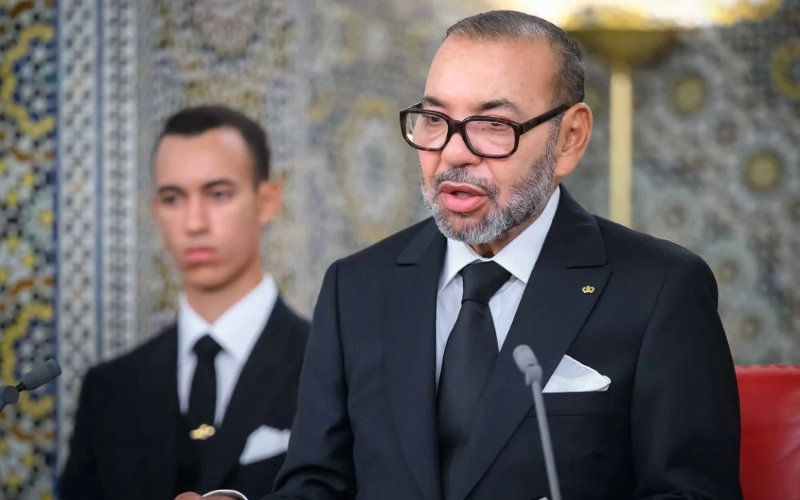Morocco’s King Calls for National Resurgence Amid Economic Triumphs and Regional Disparities

On the occasion of the traditional Throne Feast, King Mohammed VI addressed the nation in a direct-toned speech, providing an uncompromising assessment of the kingdom’s progress while also highlighting the persistent fractures. Between undeniable economic successes and entrenched territorial inequalities, the sovereign has outlined a new roadmap for the years to come, calling for a "true national resurgence."
Morocco, the monarch emphasized, has achieved undeniable gains, the fruits of a "long-term vision" and a climate of stability. The national economy has managed to stay the course despite international crises and years of drought. The country is experiencing an "unprecedented industrial renaissance," with exports more than doubling since 2014, driven by cutting-edge sectors such as automotive, aeronautics, and renewable energy. Bolstered by its modern infrastructure, such as the announced extension of the High-Speed Line to Marrakech, the kingdom has established itself as an attractive investment destination, linked by free trade agreements to more than three billion consumers.
However, behind this encouraging economic picture lies a more contrasted reality. While Morocco has crossed the threshold of "high human development" this year according to the Human Development Index and has seen its multidimensional poverty rate drop from 11.9% in 2014 to 6.8% in 2024, the sovereign refused to indulge in self-satisfaction. He lamented that "certain areas, especially in rural areas, still endure forms of poverty and precariousness." Mincing no words, he hammered that this situation in no way reflected his vision for the country, delivering a sentence that set the tone for the speech: "There is no place, neither today nor tomorrow, for a Morocco advancing at two speeds."
To bridge this gap, the king called for a paradigm shift, urging the government to abandon "classical frameworks" in favor of an approach focused on "integrated territorial development." The objective is clear: to ensure that the fruits of progress benefit everyone, wherever they live. Four priority areas have been defined. These are promoting employment by enhancing the potential of each region, strengthening basic social services such as education and health, adopting sustainable water management in the face of water stress, and launching territorial upgrading projects in line with major national initiatives.
On the domestic political front, less than a year away from the next legislative elections, the monarch emphasized the need to prepare a new General Election Code, requesting that it be adopted before the end of the year. Political consultations will be launched for this purpose with the various stakeholders to ensure a "judicious preparation" of the vote.
The speech was also marked by an outstretched hand, once again, towards Algeria. Describing the neighboring people as "a brotherly people," the king recalled the "centuries-old human and historical ties" uniting the two nations. "I have constantly extended my hand towards our Brothers in Algeria," he declared, reiterating Morocco’s willingness for "frank and responsible dialogue." Regarding the issue of the Moroccan Sahara, he welcomed the growing international support for the autonomy proposal, saluting the recent positions of the United Kingdom and Portugal. He reiterated his commitment to a consensual solution "where there will be neither winner nor loser."
Related Articles
-

King Mohammed VI Urges Dialogue with Algeria: A Bold Push for Maghreb Unity
30 July 2025
-

Moroccan Tax Fraud Scandal: Money Laundering Ring Exposed in Casablanca-Tangier Business Corridor
29 July 2025
-

Moroccan Expats Face Hidden Tax on Dream Homes: 300m² Threshold Triggers Costly Declarations
29 July 2025
-

Morocco’s King Mohammed VI to Mark 26th Throne Anniversary with Nationwide Address and Military Ceremonies
29 July 2025
-

Soaring Prices Shatter Summer Dreams: Dutch-Moroccans Face Costly Homecoming in Rif Region
29 July 2025